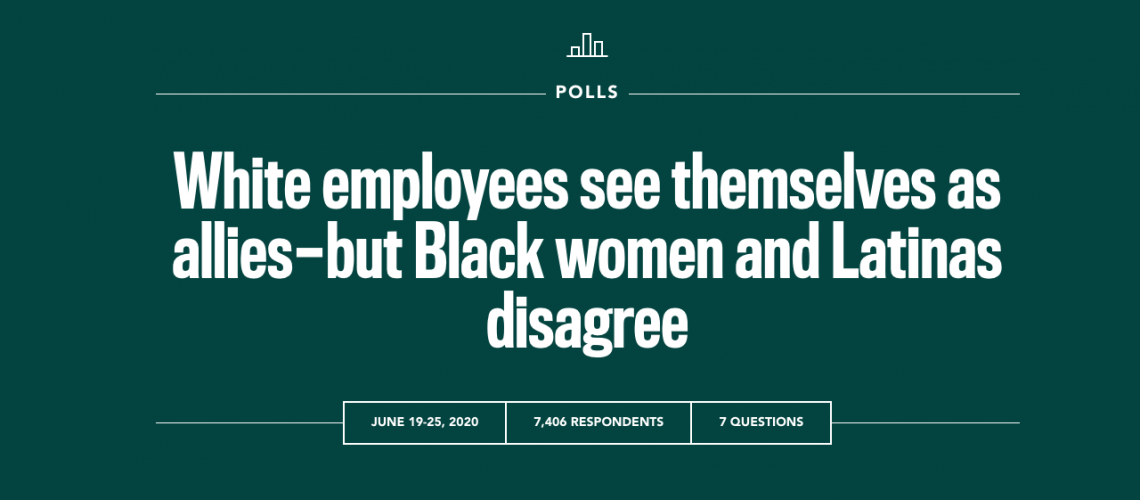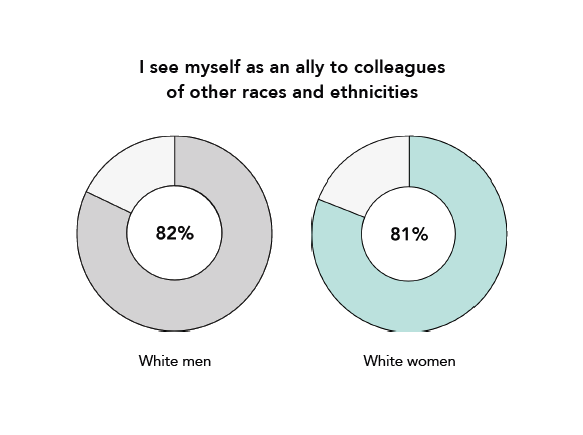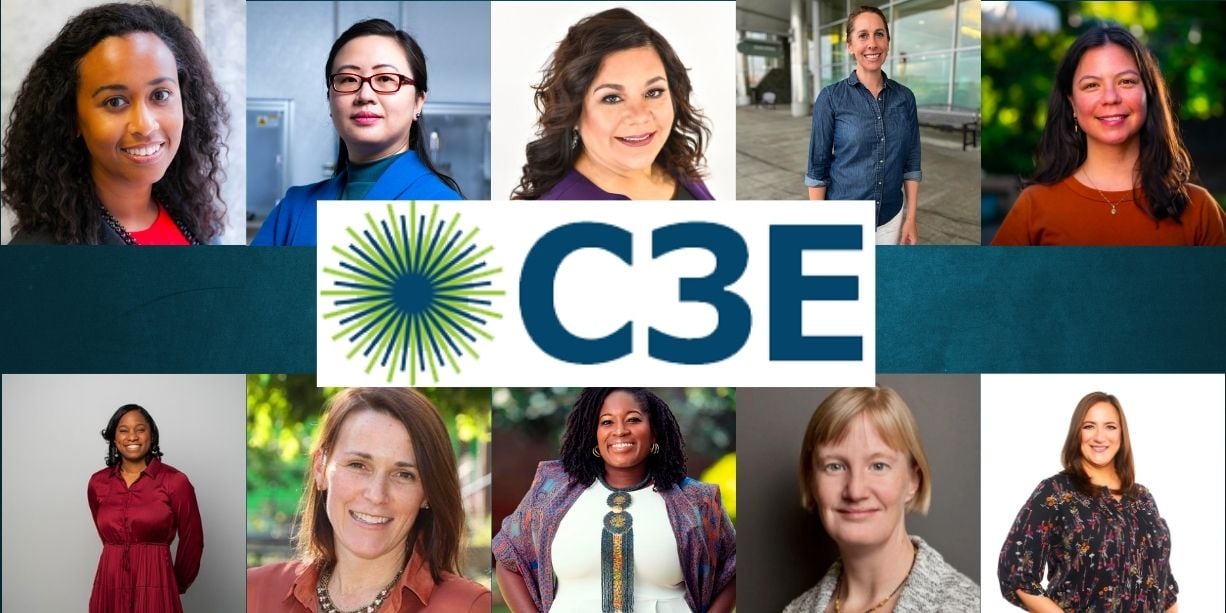In June 2020, LeanIn.Org and SurveyMonkey polled almost 7,500 U.S. adults about allyship to people of color in the workplace. The results are striking. Although more than 8 in 10 white women and men said they see themselves as allies to colleagues of other races and ethnicities, many Black women and Latinas do not feel they have strong allies at work.
We need to close this gap. Women of color face daunting barriers in the workplace—they are promoted more slowly, receive less mentorship and sponsorship, and experience a greater variety of microaggressions than women overall. It’s not enough for white employees to call themselves allies. They need to show up, boldly and consistently, until Black and brown employees see them that way, too. Here are four findings.
Most white employees see themselves as allies to people of other races and ethnicities at work
When “allyship” is defined as “using one’s power or position to support or advocate for co-workers with less power or status,” more than 80% of white women and men say that they see themselves as allies to colleagues of other races and ethnicities.
However, many Black women and Latinas don’t feel they have strong allies at work
Despite an overwhelming majority of white employees seeing themselves as allies, less than half of Black women and only slightly more than half of Latinas feel they have strong allies at work. Additionally, only about a quarter of Black women and Latinas say it’s mostly accurate that Black women have strong allies in their workplace.
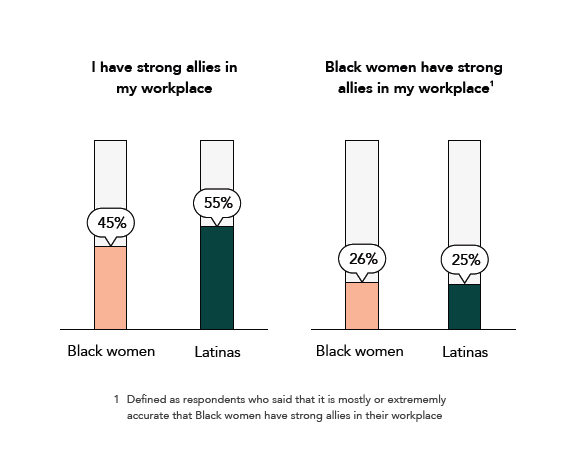
Relatively few Black women and Latinas say most of their strongest allies are white.
Only 10% of Black women and 19% of Latinas say the majority of their strongest allies at work are white, compared to 45% of white women. Since white employees, particularly white men, are more likely to be in positions of power, this disadvantages women of color—and points to the importance of white employees stepping up as allies for their Black and Latinx coworkers.
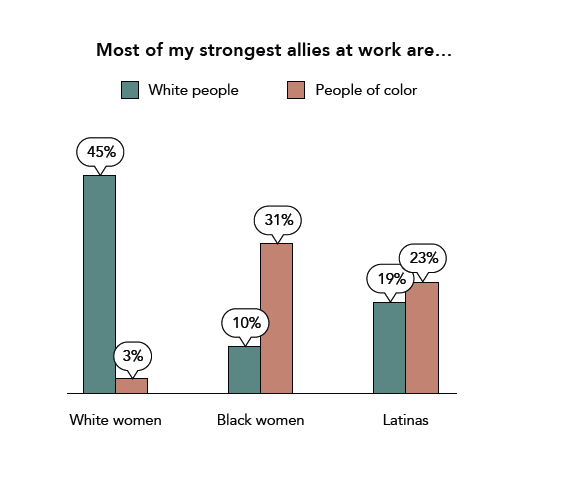
Most white employees have never spoken out against racial discrimination at work
Challenging racism is a basic act of allyship, yet fewer than four in ten white employees say they’ve spoken out against racial discrimination at work. Meanwhile, Black women and Latinas are about as likely as their white colleagues to speak out against racial discrimination, despite the fact that they are far more likely to face retaliation—including being fired—for doing so.
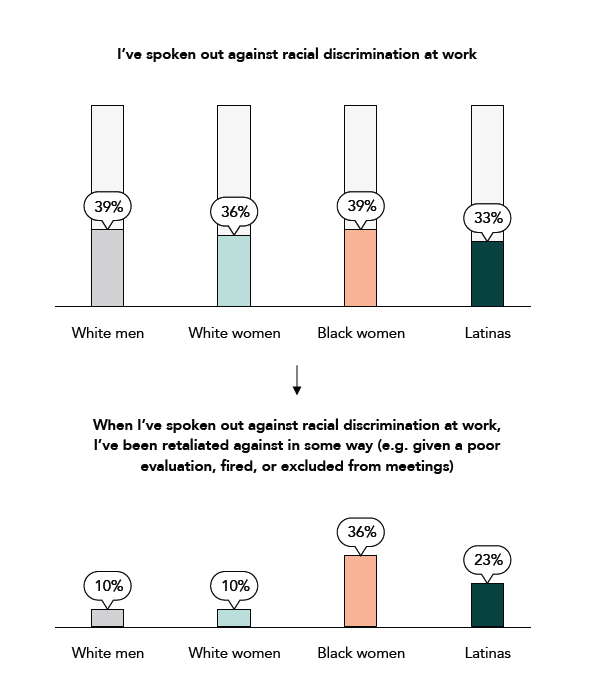
A recent survey of our community found some interesting results on allyship for women, people of color, the LGBTQI community and environment. To read more, dive into the data here.
LeanIn.org helps women achieve their ambitions and work to create an equal world. We're a proud partner to the work they do and support Lean In Energy, a 501c3 non profit. To learn more visit here.

